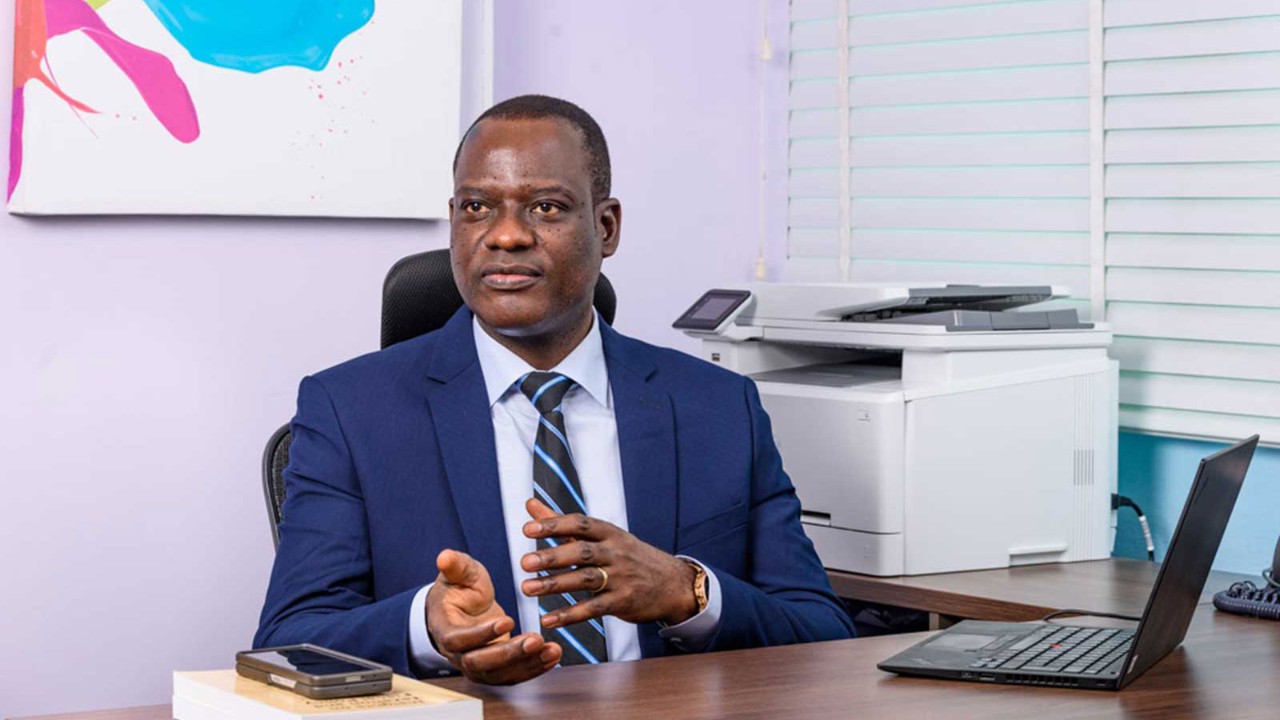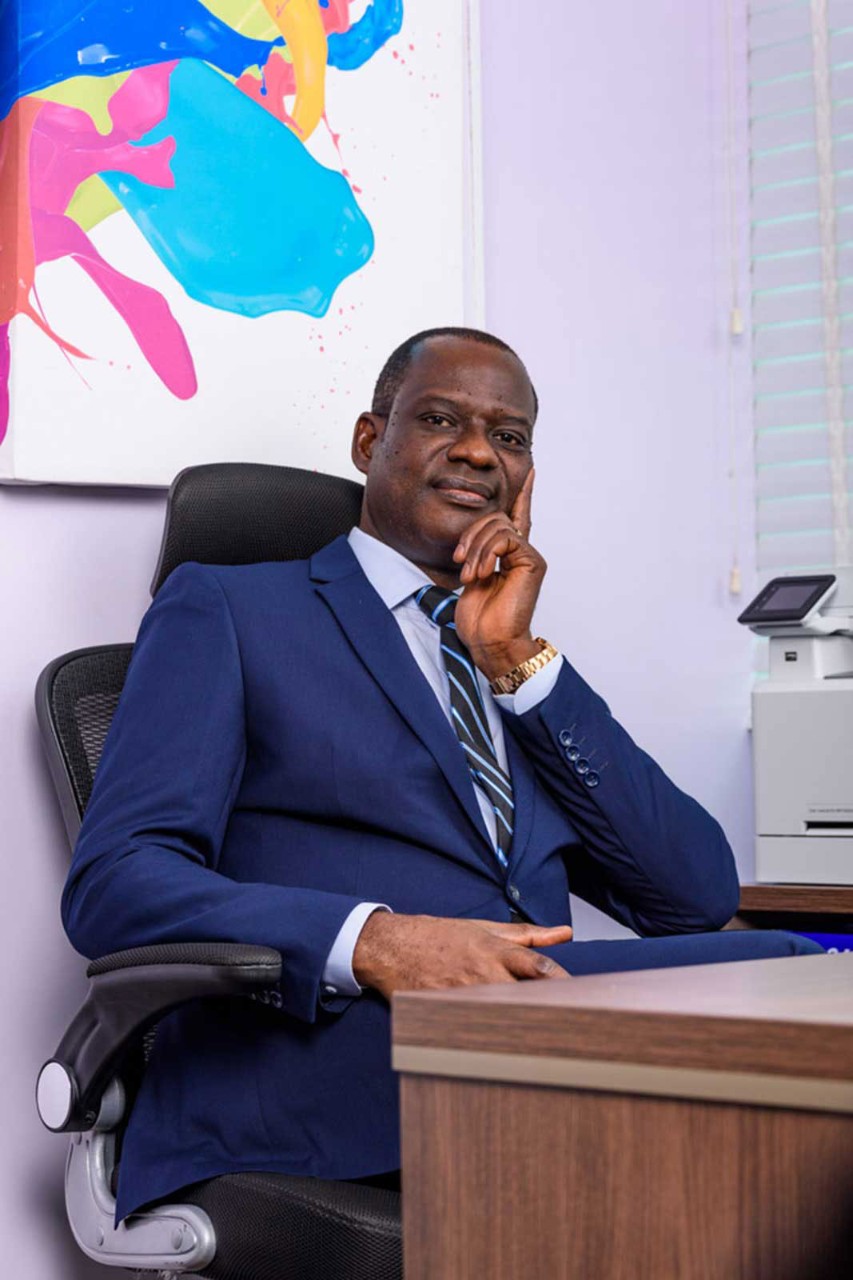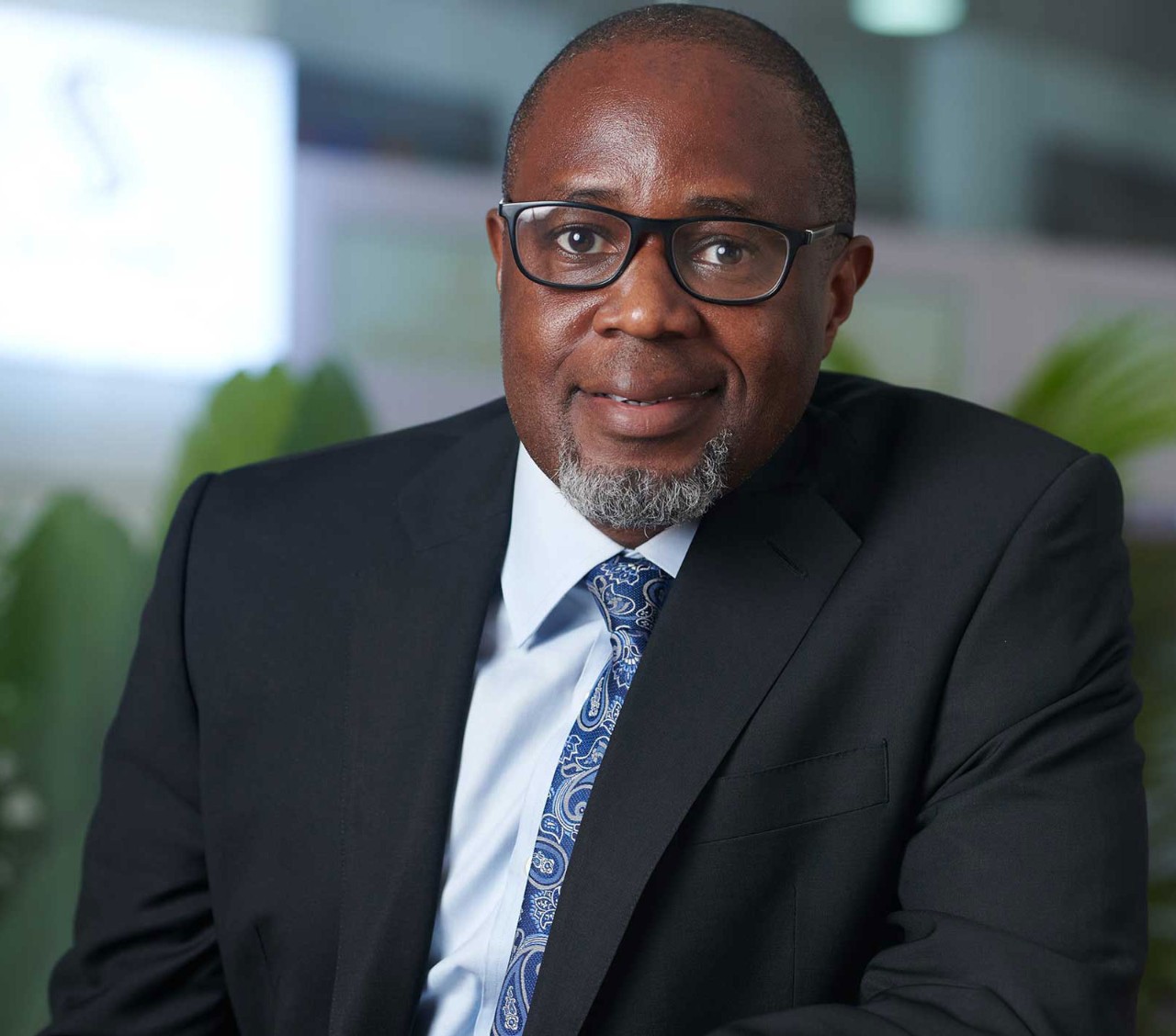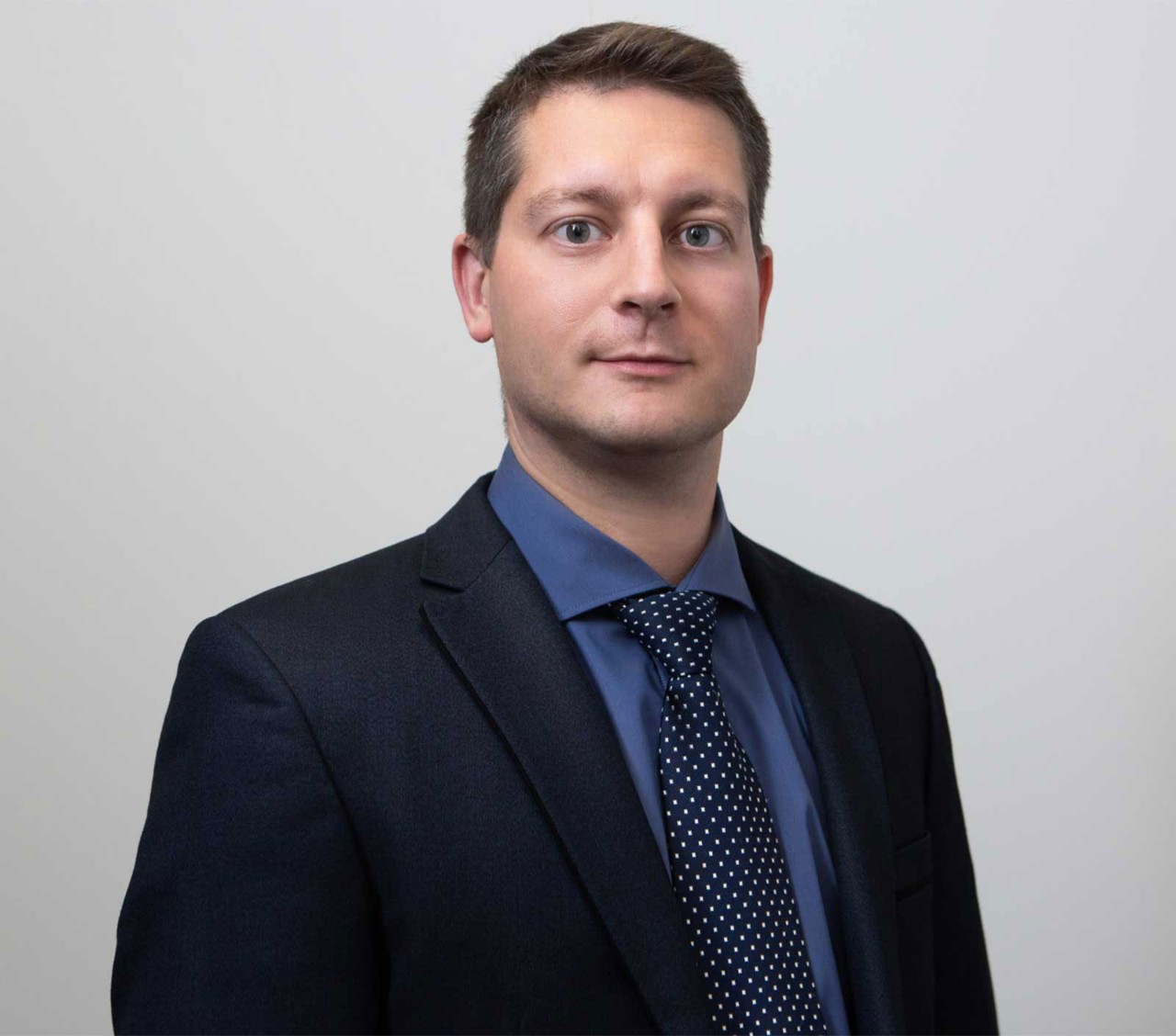
The fact that Taiwo Oyedele FCCA has police protection following death threats is testament to the high stakes that come with his current job – solving Nigeria’s ‘revenue crisis’.
A veteran partner of PwC, Oyedele is now the man leading efforts to reform both the tax base and and the tax system in Africa’s biggest economy. The challenges involves negotiating with stakeholders who have an age-old vested interest in keeping the tax system rickety, as well as elevating the profoundly low levels of public trust in government.
‘We want it to be transformative for Africa, not just Nigeria’
If his reforms go through, even half of them, Oyedele believes a turning point will have been reached.
‘We want it to be transformative,’ he says candidly from the modest office in Lagos where he chairs the presidential committee on fiscal policy and tax reform. ‘Not only for Nigeria, but for Africa. We’ve seen a lot of interest from countries across the continent – we feel like we have a regional mandate.’
That may sound grandiose, but even a cursory look at Oyedele’s brief reveals the sheer scale of the task he was given in July 2023 following the election of Bola Tinubu as president.
At the time of his appointment, Oyedele had spent 22 years with PwC where, since 2009, ‘fiscal policy’ had been part of his expertise. He has attended executive education programmes at Yale, Harvard and the London School of Economics, is an associate professor at Babcock University and also a mentor to young people through the Impact Africa Foundation.
‘The trust level is low between government and the people’
Mission impossible?
Oyedele says he did not hesitate to resign from PwC when offered his new role, although many would consider it truly daunting. First, he has to increase government revenues, aiming for a headline lift from the current 10% of GDP to 18% – equivalent to raising the tax take by an extra US$40bn or so, based on 2022 figures.
Second, the project has to attract and retain investment. The reformed fiscal system must be competitive, enabling inward investment and assisting the growth of Nigerian businesses both at home and across borders.
Finally, Oyedele is charged with improving public trust in Nigeria’s tax system. No small matter given a recent study found only 17% of adults in the country believe that non-payment of taxes is wrong and should be punished. ‘The trust level between government and the people is very low,’ Oyedele admits.
Oyedele’s committee is made of up of 75 experts from government, business, professional bodies, trade associations, the consulting sector and civil society, looking for solutions across five workstreams – fiscal management; tax, spending and borrowing framework; economic growth facilitation and competitiveness; revenue administration; and tax law reform. As well as leading it all, Oyedele is the project’s public face, and gives frequent media interviews to explain the benefits of reform. He also meets everyone from farmers and market stallholders to corporate leaders to canvass views.
‘I have seen poverty at its worst’

More than tax
Conversation soon reveals Oyedele is a man utterly committed to his job and substantive aims. On paper it looks like it’s about tax, but really it’s about expanding revenues to acquire funds to develop the country and tackle social inequality.
‘Actually, that’s the main objective at the end of the day,’ says Oyedele.
It’s personal too. He grew up in the village of Ikaram Akoko, in Ondo state in south-west Nigeria where, if crops failed, the family would struggle to eat. When it came to paying the fees for secondary school exams, the family relied on a small scholarship. ‘I have seen poverty at its worst,’ he says.
The social mission is clear, but there are risks. The work will involve slashing the number of business taxes from over 60 currently to around eight, while also addressing which agencies and levels of government should be authorised to levy and collect tax.
The intention is to build public credibility and trust by picking off the low-hanging fruit first. For example, the project aims to bring an end to companies paying some taxes in foreign currency, a practice that not only puts pressure on the Nigerian naira but also creates compliance issues for small businesses unable to access, say, US dollars. There is also a proposal to exempt small business from withholding tax as they simply don’t have the ability to file proper returns.
‘Informal tax collectors are victims of the system and need help’
Political will
But there are trials ahead. In a country with three levels of government, ‘taxing rights’ can be uncertain, with costly court hearings required to settle disputes. It is an issue that will need political will and constitutional reform – a tall order.
Another tricky problem will be streamlining the 60+ government agencies that can currently collect tax. Oyedele says the process sometimes involves non-government staff throwing up roadblocks so they can continue to collect levies. The system is rife with corruption and creates huge uncertainty among taxpayers.
Oyedele’s preference is for the country’s revenue service to be the sole collection agency with the other agencies funded through government budget. All of this means that stakeholder management is potentially the biggest risk facing the project. Oyedele has some sympathy for the ‘informal’ tax collectors and believes the answer lies in training them to become part of the reformed system.
‘If we are going to stop them, we have to think about what that means for them, because I think those guys are victims of the system,’ he says. ‘We shouldn’t look at them like people we need to put in jail. They’re people you need to help.’
‘There is a bigger purpose than just taking care of yourself and your family’
Undeterred
Oyedele has been open about the reform plans and has received some pushback. After one recent TV interview, his family received death threats, prompting the need for police protection.
He remains steadfast. Part of this comes from his ACCA training, he says, which helped foster an acute focus on the public interest. ‘It’s all about values, about ethics and integrity,’ he explains. That training built on the grounding he was given by his parents, who ‘consistently reminded us about values. Those values were celebrated.’ He adds: ‘I cannot be compromised.’
But this is also an opportunity to be part of a process that could alleviate poverty and raise standards of living not only in Nigeria but across the continent. ‘I am undeterred. I feel like this is something worth sacrificing my life for,’ he declares. ‘The essence of life shouldn’t be just to take care of yourself and your immediate family. There has to be a bigger purpose.’



